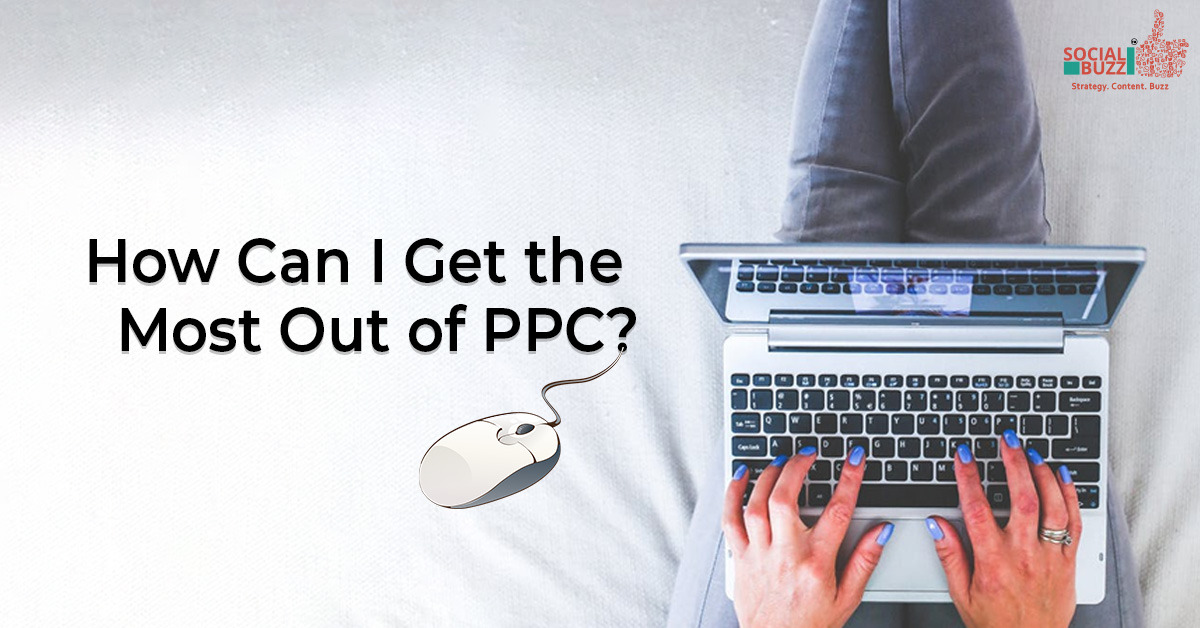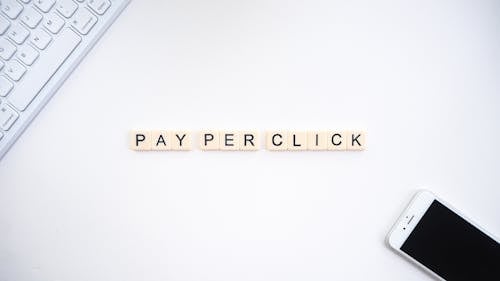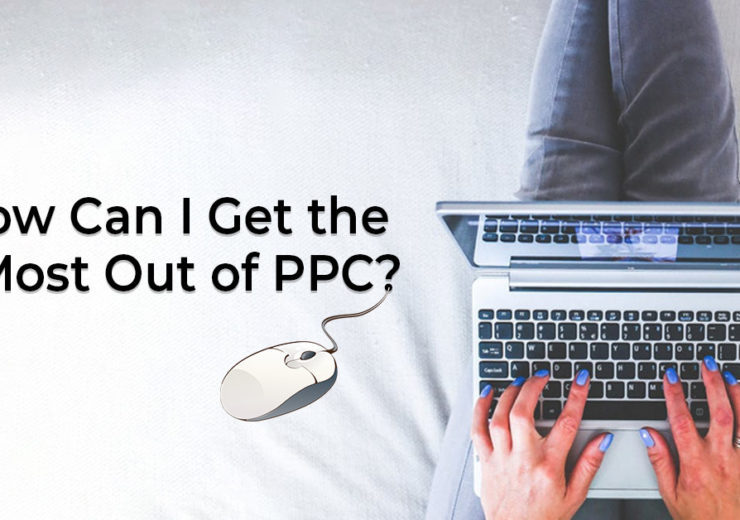How Can I Get the Most Out of PPC?

Pay Per Click (PPC) is a way of buying visits to your site, rather than attempting to “earn” those visits organically. Thus, it can be called a model of Internet marketing under which an advertiser pays a fee each time the advertisement is clicked. It can be easy to implement but difficult to conceptualize as its conceptualization depends on a varied set of factors like audience demography, online history, online behavior, etc. Rushing into the PPC process can cause a disaster if you don’t know about the essential rules/guidelines of PPC. By following the four basic tips in the section that follows, you will be able to launch a compelling PPC battle that will bring a new audience and a new set of visitors to your site.
Set goals for your PPC campaigns
Numerous businesses and marketing groups begin with pay-per-click without having any goals. This can lead to time and money wastage. Make sure you answer all these questions before beginning your campaign.
- Who is your target audience?
Continuously remind yourself who you’re intending to reach through paid search. While picking keywords and creating ads, select the keywords (both long tail and short tail) your audience would search for. Be certain that the content on your landing page legitimately lines up with these keywords and the promotion content to guarantee a top-notch client experience and to amplify your ROI.

Watch our video to figure out your Target audience: https://www.youtube.com/watch?v=3qtBxTOe2p8
- What result do you need?
Figure out what you might want your users to do once they click on your paid search advertisement. Highlight this goal as a call to action in your ad text. Drive visitors to a landing page that effectively leads them toward this objective. This goal should also determine the type of ad you choose. For instance, certain styles of Facebook Ads are designed to drive traffic to a landing page, while others are engineered to maximize visibility, but offer little in the way of conversions.
- How will you realize the PPC Campaign is a success?
It is assumed you have set up an approach to quantify accomplishment before launching the campaign. Check your tracking URLs and pixels, so you will realize which traffic and actions are originating from PPC, and either for immediate or organic traffic. Ongoing analysis of your campaign metrics will reveal ads and keywords you may want to pause, rework, or promote with additional resources, depending upon their performance.
Set up An Easy-to-Use Campaign Structure
The two words to remember here are Relevant and Simple:

- Relevant
On both Google and Social PPC promotions, you have the alternative to group together ads. Despite the fact that it might be enticing to attempt as much of your message into an ad set as possible, but try to remain centered. In this way, you’ll get the most out of your ads and can give relevant information to each group audience. The higher relevance, the more prominent your audience response will be.
- Simple
Though a PPC campaign is just a part of your overall marketing, it requires daily tracking and management. Ensuring your campaign structure is instinctive and manageable will make monitoring your campaign more effective and will allow your team to better identify efficiencies and inefficiencies. If your set up is excessively unpredictable or complex and your team doesn’t have the transmission capacity to keep up, you will most certainly end up bypassing up potential ROI.
Understand the Factors of Your Success
Regardless of how large your business is, if you are going to incorporate PPC in your marketing strategy, then it’s significant that you understand what factors play into the success of a PPC campaign. This will help everyone in setting suitable goals and make modifications that genuinely lead to progress.
The following are four key factors that can influence how frequently your advertisements appear, and how effective they are in reaching your goal:
- Keyword and Ad Relevance
Ensure that you have chosen keywords and ad language with respect to your target audience. For Google Search Ads, there should be a close association between the keywords you’re focusing on and the copy of your ad.
- Landing Page
Your landing pages should be optimized to be clearly related to the ad and have a direct and relevant call to action.
- Quality Score
Despite the fact, that this specific factor is unique to Google Ads, it has the right to be featured. This score is Google’s evaluating of the quality and relevance of all of the parts of your campaign: keywords, ad copy, landing pages, etc. The better your quality score, the more advertisement clicks you can get, at lower costs.
- Budget

In addition to the fact that you need to think about your own spending plan, yet additionally the potential budget of your competitors. This is especially true whenever there is bidding involved in the ad display process. For example, on Google Ads, keywords cost more or less depending upon the demand for them. Highly valuable keywords in your industry may have a high cost-per-click; if your greatest rival has a huge spending plan, they may outbid you every step of the way.
Follow the new trends in PPC
As the world of Pay-Per-Click (PPC) becomes increasingly competitive, it has never been more important to ensure you are spending your budget efficiently and maximizing your Return On Investment (ROI). But with new PPC strategies and opportunities emerging all the time, which ones should you pay attention to?
How can Insurance companies get a good Google Rank: https://www.youtube.com/watch?v=NqfyCvB5PCg
- PPC automation
One of the greatest trends in Pay-per-Click (PPC) for 2020 will be automation – the utilization of Artificial Intelligence (AI) and machine learning (ML).
- Artificial Intelligence
Artificial intelligence is changing the world as a rule and its economic impact is expected to reach $15.7 trillion by 2030. With regards to PPC, AI will permit advertisers to make progressively effective campaigns and is especially useful to:
- Predict the CTR of future ads
- Calculate the impact of ads on quality scores
- Identify the likelihood of conversion from a given customer
- Analyze the bids that are likely to get maximum traffic
- Optimize keywords, ads or campaigns when a certain event happens (e.g., when your CPC falls below a specified amount)
As we close this blog post here, stay tuned as bring you the top trends you definitely need to add to your PPC strategy for 2020.
Source:
https://www.singlegrain.com/pay-per-click-2/ppc-trends-2020/
https://www.smartinsights.com/paid-search-marketing-ppc/paid-search-strategy/pay-per-click-ppc-trends-2020/
About the Author:
Shilpa Khatura is a Delhi University student, full of creative ideas and passionate about dancing. With a friendly smile on her face, she can put you at your wit’s end with ease! She has been honing her Marketing and Communication skills for the last few years since her elder sister gauged her interest in the field of Marketing. As a Digital Marketing Executive at Social Buzz, Shilpa takes an active part in strategizing marketing campaigns and executes them to perfection!





Wonderfully summed up and would be really helpful in my next PPC campaign! I will definitely try to implement these points.
We are glad that you find this post useful. Here is hoping that you would apply its learnings to fulfill your business objectives.